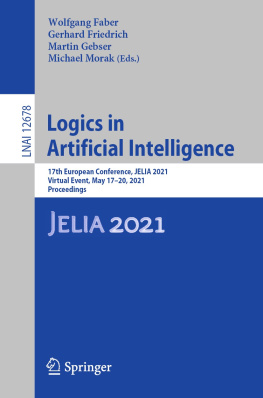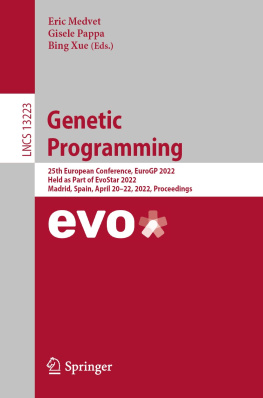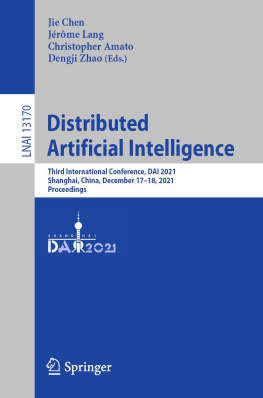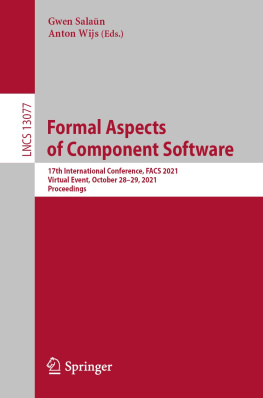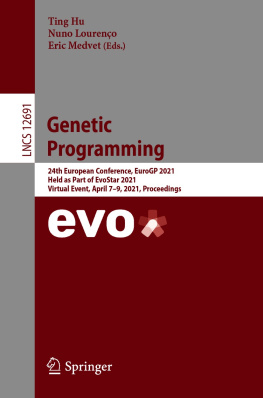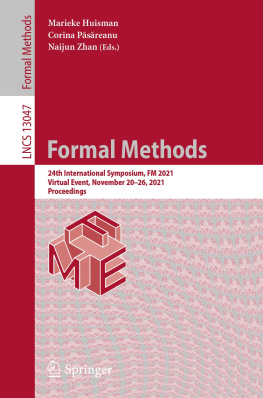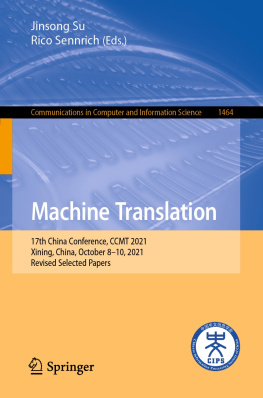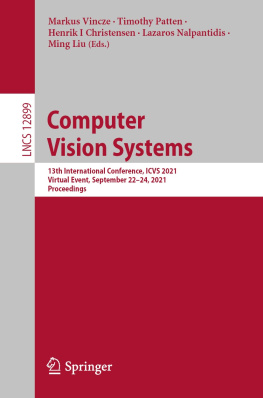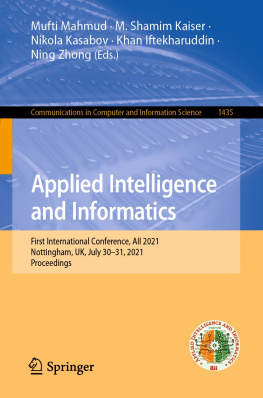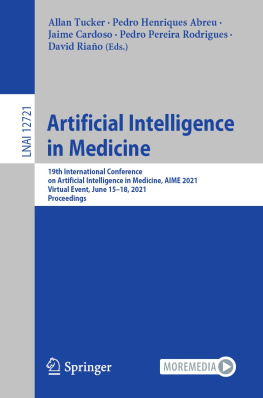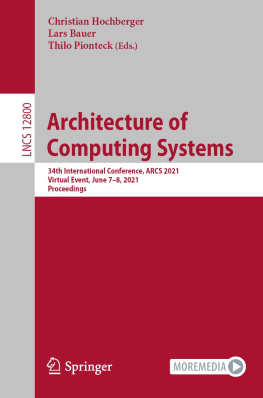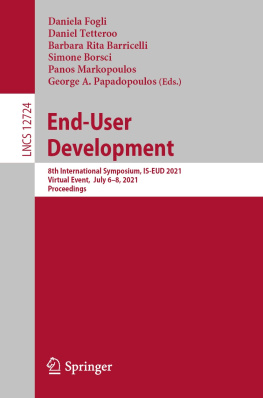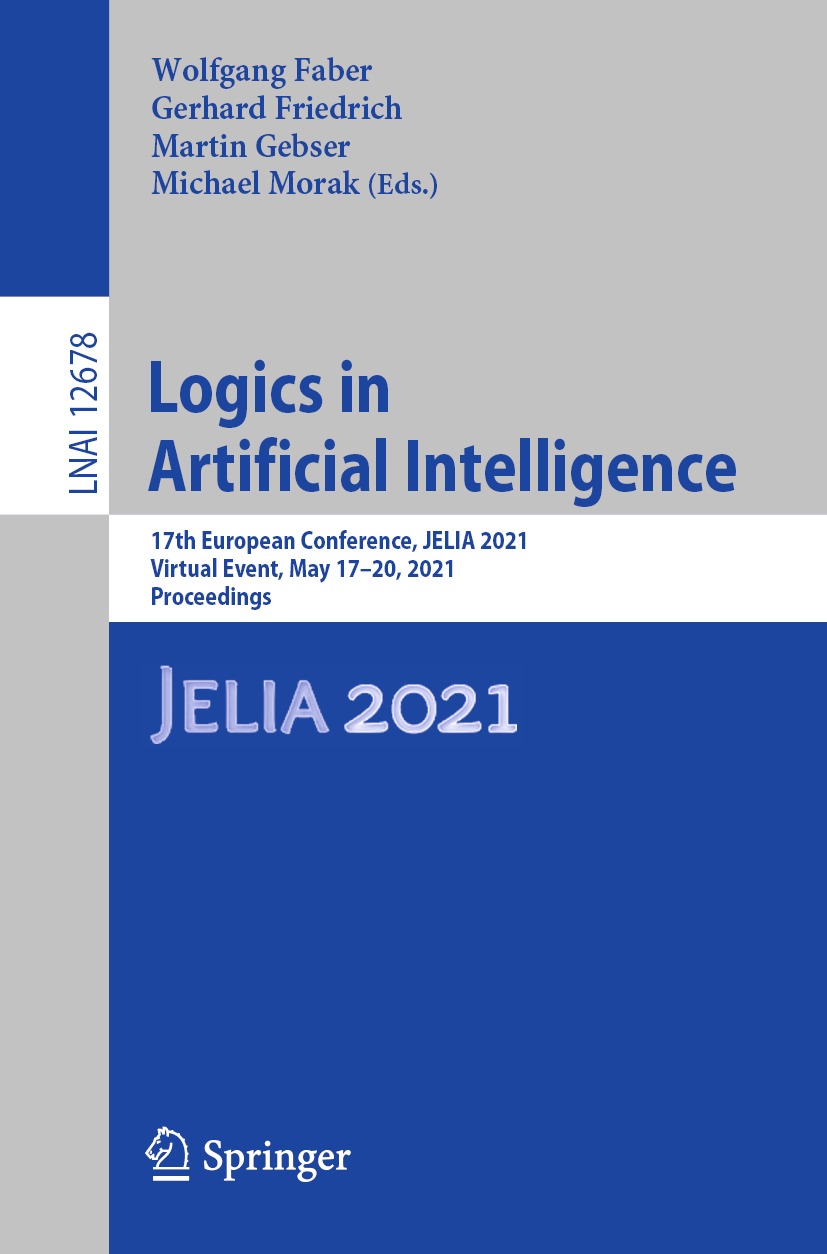Editors
Wolfgang Faber
University of Klagenfurt, Klagenfurt, Austria
Gerhard Friedrich
University of Klagenfurt, Klagenfurt, Austria
Martin Gebser
University of Klagenfurt, Klagenfurt, Austria
Michael Morak
University of Klagenfurt, Klagenfurt, Austria
ISSN 0302-9743 e-ISSN 1611-3349
Lecture Notes in Computer Science Lecture Notes in Artificial Intelligence
ISBN 978-3-030-75774-8 e-ISBN 978-3-030-75775-5
https://doi.org/10.1007/978-3-030-75775-5
Springer Nature Switzerland AG 2021
This work is subject to copyright. All rights are reserved by the Publisher, whether the whole or part of the material is concerned, specifically the rights of translation, reprinting, reuse of illustrations, recitation, broadcasting, reproduction on microfilms or in any other physical way, and transmission or information storage and retrieval, electronic adaptation, computer software, or by similar or dissimilar methodology now known or hereafter developed.
The use of general descriptive names, registered names, trademarks, service marks, etc. in this publication does not imply, even in the absence of a specific statement, that such names are exempt from the relevant protective laws and regulations and therefore free for general use.
The publisher, the authors and the editors are safe to assume that the advice and information in this book are believed to be true and accurate at the date of publication. Neither the publisher nor the authors or the editors give a warranty, expressed or implied, with respect to the material contained herein or for any errors or omissions that may have been made. The publisher remains neutral with regard to jurisdictional claims in published maps and institutional affiliations.
This Springer imprint is published by the registered company Springer Nature Switzerland AG
The registered company address is: Gewerbestrasse 11, 6330 Cham, Switzerland
Preface
This volume contains the proceedings of the 17th European Conference on Logics in Artificial Intelligence, which was to take place at the University of Klagenfurt, Austria, but due to the COVID-19 pandemic was held as an online event during May 1720, 2021.
The European Conference on Logics in Artificial Intelligence (or Journes Europennes sur la Logique en Intelligence ArtificielleJELIA) began back in 1988, as a workshop, in response to the need for a European forum for the discussion of emerging work in this field. Since then, JELIA has been organized biennially, with proceedings published in the Springer series Lecture Notes in Artificial Intelligence. Previous meetings took place in Roscoff, France (1988), Amsterdam, The Netherlands (1990), Berlin, Germany (1992), York, UK (1994), vora, Portugal (1996), Dagstuhl, Germany (1998), Mlaga, Spain (2000), Cosenza, Italy (2002), Lisbon, Portugal (2004), Liverpool, UK (2006), Dresden, Germany (2008), Helsinki, Finland (2010), Toulouse, France (2012), Madeira, Portugal (2014), Larnaca, Cyprus (2016), and Rende, Italy (2019).
The aim of JELIA is to bring together active researchers interested in all aspects concerning the use of logics in artificial intelligence to discuss current research, results, problems, and applications of both theoretical and practical nature. JELIA strives to foster links and facilitate cross-fertilization of ideas among researchers from various disciplines, among researchers from academia and industry, and between theoreticians and practitioners. The scientific community has been increasingly showing interest in JELIA, which during the years featured the growing participation of researchers from outside Europe and a very high overall technical quality of contributions; hence, the conference turned into a major biennial forum and a reference for the discussion of approaches, especially logic-based, to artificial intelligence.
JELIA 2021 received 68 submissions in two different formats (long and short papers). Throughout the reviewing process, at least three Program Committee members took care of each work. Out of the 68 submissions, 27 long and 3 short papers were accepted, amounting to an acceptance rate of 44%, which is comparable to previous JELIA conferences. Of the accepted papers, 13 were declared to be student papers (21 submitted), 5 to be system papers (6 submitted), and 1 to be an application paper (4 submitted) by the authors upon submission.
We would like to thank the members of the Program Committee and the additional reviewers for their efforts to produce fair and thorough evaluations of the submitted papers, the local organization committee, and of course the authors of the scientific papers, including those not accepted for publication. The quality of the contributions was very high, which is the essential ingredient for a successful scientific conference.
The conference program included invited talks by Thomas Eiter, Esra Erdem, and Alessandra Russo, and had prizes for the Best Paper and Best Student Paper, each received a prize money of EUR 500, kindly offered by Springer. We are grateful to all sponsors for their generous support: Frderverein Technische Fakultt, Springer, and of course the University of Klagenfurt. Last, but not least, we thank the people of EasyChair for providing resources and a marvellous conference management system.
Wolfgang Faber
Gerhard Friedrich
Martin Gebser
Michael Morak
March 2021

